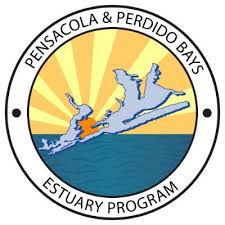Looking Back and Moving Forward
- A Wu

- Dec 21, 2020
- 3 min read

There's no need for me to tell you how much of a roller coaster 2020 has been. But we're almost at the end of the year, and it's time to look towards the future. Though it certainly seems like the world is horrible at times, its advancing more and more every day, and there are good things to celebrate.
Let's take a look at some of those good things, shall we?
Water-soluble Plastic Bags

Throughout this year alone, several companies have developed water-soluble plastic bags that can replace the standard plastic grocery bags that you see in stores. Mitsubishi Chemical in Japan has reportedly developed water-soluble plastic bags that dissolve in seawater in about a year. The bags are reported to be made of "plant-based ingredients, such as sugar cane," though it is difficult to find the exact material that it is made of on Mitsubishi Chemical's website. From my research, it appears that these bags are most likely made of Biodegradable Polymer, though I encourage you to conduct your own research to find out more about this product. Here is another link with more information on the material.
Green Ocean Group, an Australian company, is another group that has developed water-soluble plastic bags available for purchase. Their bags are made from "75% PVAL + 15% Glycerin + 10% additives," PVAL being polyvinyl alcohol made from natural gas. According to Green Ocean Group's website, the bags are not waterproof, but they dissolve in cold or hot water in minutes. Again, I encourage you to check out the website for more information. Think about the pros and cons of these types of bags. Do you think they're long or short-term solutions?
Pensacola and Perdido Bay Estuary Program

Established in 2018 with funding from the Environmental Protection Agency (EPA), the program aims to restore, conserve, and manage local watersheds through community engagement and cooperation. This year, the program was granted $297,220 from the EPA to "identify and mediate" sources of water pollution in the Pensacola Bay System, collaborating with grassroots organizations and local schools to reduce the amount of trash in our waters.
The Pensacola and Perdido Bay Estuary Program also granted approximately $200,000 in the form of nine "mini-grants" to organizations and programs designed to improve local water quality. Recipients range from Booker T. Washington High School to the National Wildlife Federation; it just goes to show how dedicated the community can be!
Renewable UWF Campus Campaign
Currently, a senior at UWF, Jay McGee, is leading the campaign for UWF to become a 100% renewable energy campus by 2050. An intern for Environment Florida, McGee believes that universities are a microcosm of society, a representation of utility use overall. If UWF goes renewable, Pensacola could be inspired to follow suit, eventually spreading renewable energy use across Florida. We are the Sunshine state, after all. Why not lead the charge to renewable energy use with our resources?
Renewable energy at UWF wouldn't be completely solar, though. Solar panels are expensive to install; McGee estimates that it would take approximately 2 million dollars to place every building on solar power. Instead, McGee suggests a combination of different sources, including hydroelectric power through the Pensacola Bay System.
Think about it. If a university goes renewable, what kind of effects would that have, environmental or otherwise? STEM majors at UWF could increase, for one. The community could be inspired to follow in UWF's footsteps. Air and water quality could increase. What else do you think could happen?
There's something even better about this. There is an opportunity for you to support McGee and Renewable UWF! Fill out this google form to demonstrate your interest and help support this project. Your interest as high school students could demonstrate a greener future for all of us!
Legume
This one is about you. PHS has supported Legume even through this year, participating in Legume's online challenges and plastic bag collections and helping to spread the word about this project. Going into this holiday season, I hope all of you have learned something from Legume, whether it be how to research environmental legislation or how to repurpose your old clothes to keep them out of landfills.
Happy holidays, everyone. Live Green!
.png)




Comments